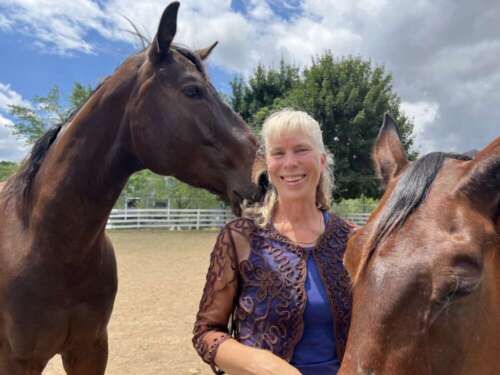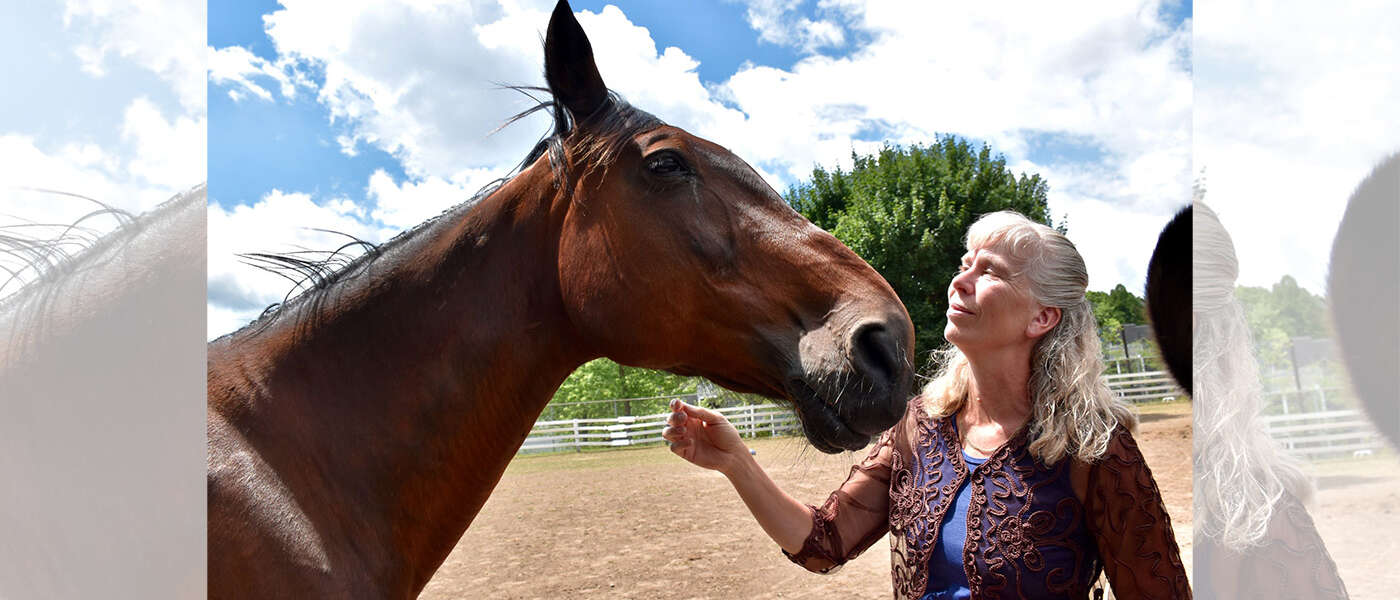When horses talk, how well are humans listening?
That question posed the basis of new research from the University of Guelph suggesting the sound a horse makes – their whinny – contains nuances that humans can pick up on.
The answer, it turns out, is that humans are attuned to what a horse is saying and through the pitch and tone of their whinny, or neigh, can better understand whether the animal is content or upset.
Dr. Katrina Merkies, professor in the Department of Animal Biosciences, studies horse behaviour, welfare, equitation science and management at the Ontario Agricultural College. With graduate student Haley Belliveau, Merkies expanded on her previous research on horse blinks to gauge whether the average human could discern positive or negative emotions in a horse’s verbal expression.
Genetic programming across species enables a shared language
Through an online survey, more than 300 respondents with varying familiarity with horses listened to 32 audio clips of the animals “talking,” involving different breeds, ages and sexes.
What the participants relayed to the researchers was a little surprising, Merkies said.
“You would expect people who are familiar with horses to better understand the vocalizations,” she said. “But interestingly, that wasn’t the case.”
On average, most respondents were able to differentiate between the vocalizations the horses made, regardless of their equine knowledge or experience.
Do horses speak English?

Listening to the audio clips, the survey’s respondents were directed to rate the horse’s arousal level on a scale of one to 100, or “calm” to “very excited.”
“We wanted to know if people could distinguish was the horse happy or upset,” Merkies explained.
Respondents ranged in age from 18 to 65-plus, came from eight different countries and spoke a variety of languages, prompting a thought for Merkies: “Do horses speak English? Do horses have dialects?”
Other researchers have determined a “common genetic programming” across species, Merkies said. “We can pick up tone, intonation, tonality, frequency of vocalizations and pick up whether it’s positive or negative,” she said, regardless of what animal is making the sound.
Researchers found adults over 65 tended to rate the horse whinnies as “more aroused,” something researchers considered to result from more life experience.
When a horse speaks – listen
Horses communicate in different ways, body language being the most common, Merkies said. A low head position can signal a relaxed horse whereas a high head position means a horse is usually focused on something moving in its environment. A horse with their ears pinned back is a sure sign of anger and a horse frozen in position is one on the edge of exploding.
A horse’s vocalizations are not one of the more prominent communicators and compared to other animals, equines lack a large vocal repertoire, Merkies explained. Contrary to the way they have been depicted in movies and television, horses don’t vocalize much.
“Nevertheless,” she said, “we need to pay attention to what they’re telling us.”
Deciphering the range of vocalizations is part of a bigger whole, Merkies said, to better understand horses and improve the relationship humans have with them. Knowing what a horse’s whinny is signalling allows humans to move beyond listening to acting, when and if necessary.
“We’ve got to step up and put ourselves in their hooves.”
Contact:
Dr. Katrina Merkies
kmerkies@uoguelph.ca
